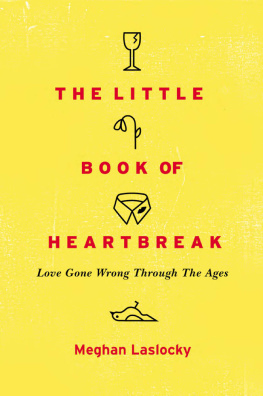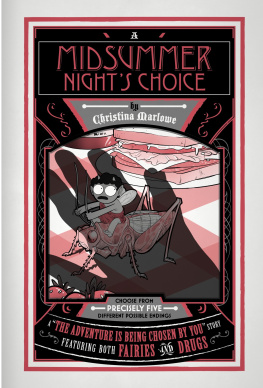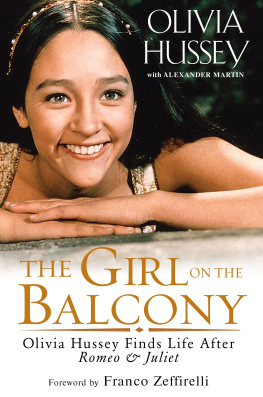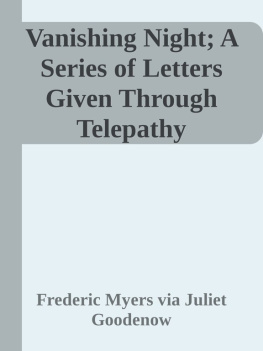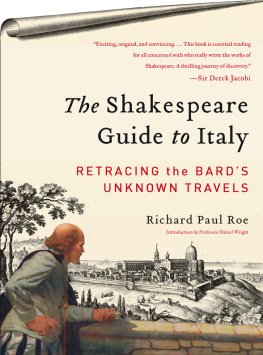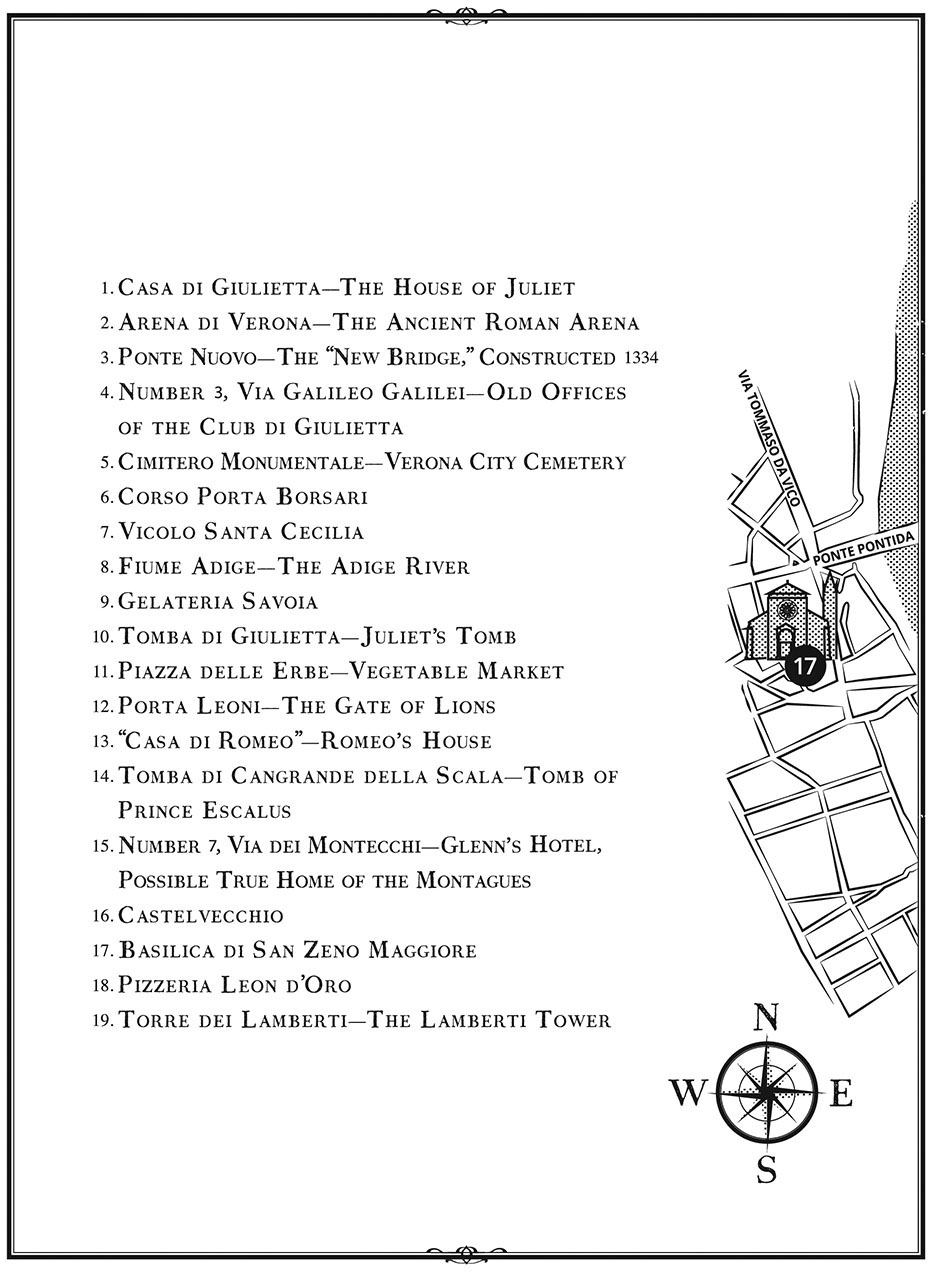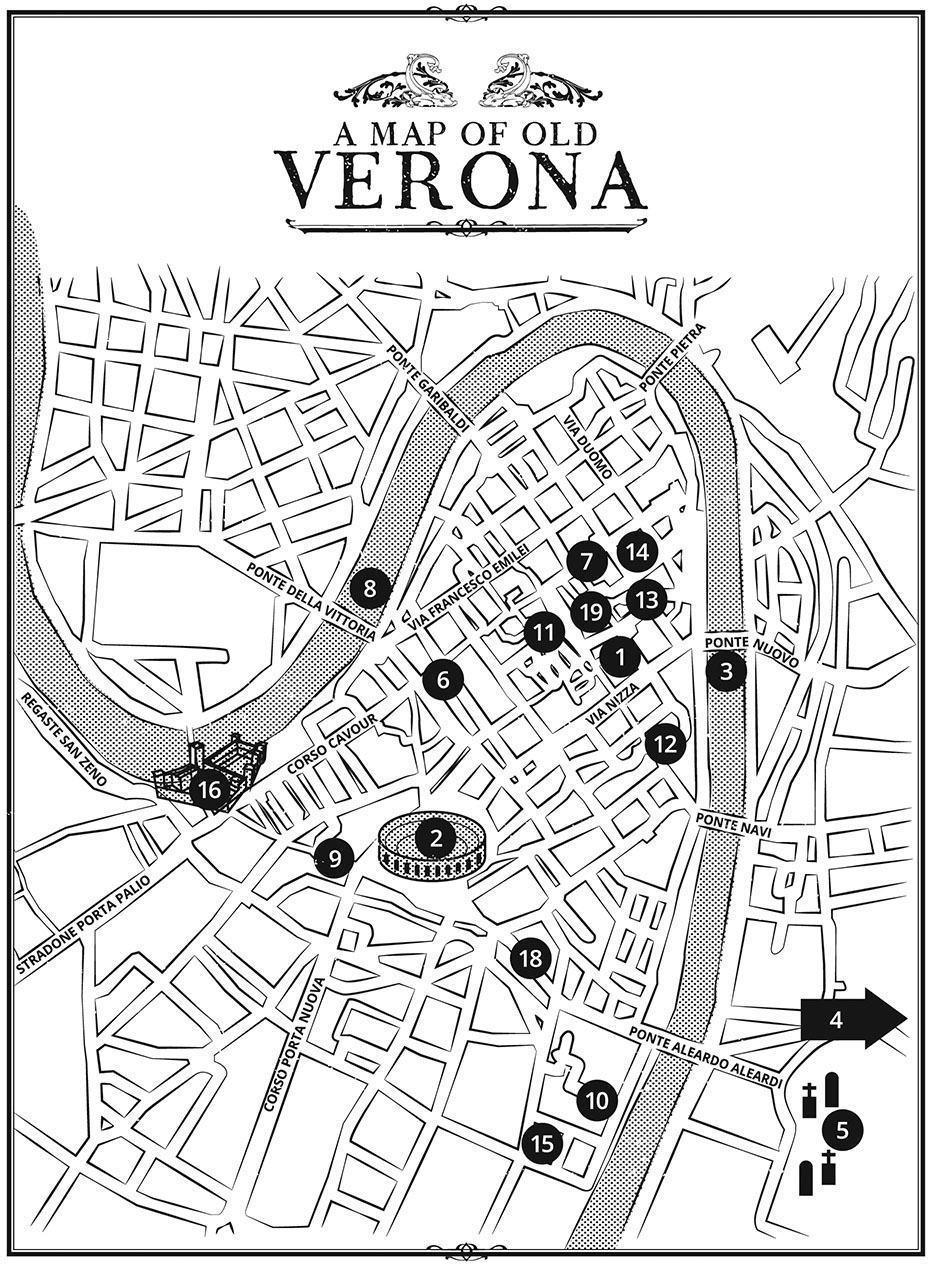Thank you for downloading this Gallery Books eBook.
Join our mailing list and get updates on new releases, deals, bonus content and other great books from Gallery Books and Simon & Schuster.
C LICK H ERE T O S IGN U P
or visit us online to sign up at
eBookNews.SimonandSchuster.com
We hope you enjoyed reading this Gallery Books eBook.
Join our mailing list and get updates on new releases, deals, bonus content and other great books from Gallery Books and Simon & Schuster.
C LICK H ERE T O S IGN U P
or visit us online to sign up at
eBookNews.SimonandSchuster.com
For Mom and Dad,
who have been together now
for sixty-two years
A Note to the Reader
A tiny office in Verona, Italy, receives more than ten thousand letters a year, all of them addressed to Juliet, the fictional character in Shakespeares tragic play Romeo and Juliet . The letters speak of heartbreak and the endless search for love. They come from all over the world, and every letter is answered by a group of women calling themselves the secretaries of Juliet. They have been answering letters for decades. There are those who believe that Romeo and Juliet is actually a true story of star-crossed lovers who lived in Verona in the year 1302. We may never know the truth, but the figure of young Juliet lives on as the symbol of a once-perfect love.
Act One

In fair Verona, where we lay our scene
Dear Juliet,
I am no longer young, but there was a time, yes, there was a time when I believed in love. I can sound out the names of lovers and draw up their faces, each one, so clearly. And then they are gone. Why is it that love comes so easily for some but refuses to stay for others? Why should it be so? Why should it twist our souls so grievously?
I read the letter all the way through. It looked like the others in the pile, nothing terribly special about it. These letters are all handwrittenmatters so close to the heart cannot be typedthen they are folded into hopeful envelopes and mailed to Juliet, care of Verona.
Giovanna appeared at my door. Ciao, she said. Would you care for a coffee?
No, I... Im okay.
Giovanna wore pearls even in the afternoon. She swept into the room, glanced at the letter in front of me, and read my thoughts. Some are quite moving, are they not?
Im not sure how to answer this one.
Ah, she said, scraping a wooden chair in to sit beside me. She bent over the letter, tipping her reading glasses slightly. Many of the letters are full of sadness. They are poetry too sometimes.
So how should I answer?
She peered at me. Sometimes it is enough for them just to write.
This woman writes so beautifully. Im not sure I
The answer, she went on, patting the letter, is often contained in their words.
But
You must be like a fortune-teller. You must watch for signs. The writer will tell you what they want to hear.
I dont know.
Giovanna looked at me as if I were slow. She needs to know that her life is good, that she is worthy, that she is important. She needs to know that. Thats what you must write.
And then I sign it Juliet?
If you wish. Or you can sign Juliets secretary.
Okay.
Giovanna stood and straightened her dress. We take this responsibility very seriously. She turned on her heels and walked to the doorway, where she hovered, a slender hand on the doorframe.
Yes, of course, I said.
No coffee then? She fixed me with a final stare.
No, thanks. Ill just get to work.
Va bene. She lingered, watching, then brushed out of the room.
There is no Juliet, of course, though the tourist board of Verona would certainly like you to believe there is. Verona is an ancient city. Around it lie the fields of Valpolicella, valley of the cellars, some of the oldest vineyards in the world. Julius Caesar spent his summers here. Dante came in exile to finish his Divine Comedy . But nothing is as singular to the city as the legend of Romeo and Juliet.
When I first crossed into the old town, I passed through a gate in the towering medieval walls. On a bronze plaque there, bolted to the stones, were the words THERE IS NO WORLD WITHOUT VERONA WALLS, BUT PURGATORY, TORTURE, HELL ITSELF .
That was Romeos line. He didnt exist either, at least not exactly.
Plaques like these are all over Verona, marking the major events in Shakespeares playa story that was not written here, a story that was made famous centuries before, in a different language and a different country.
I arrived in Verona at the end of July, two years ago, with a pocketful of questions. I was here to learn something. Something about love and maybe something about Shakespeare. Already I could see the crowds ahead of me, bunching and yammering, cameras at the ready, and I knew exactly where they were headed. The throngs funneled past gleaming shopwindows, past the cashmere sweaters and five-hundred-dollar shoes on display, and I was swept along with them. The street opened into a square on our left, but the crowd veered right and then, suddenly, there was an arch and a passageway before us and a sign that read CASA DI GIULIETTA the House of Juliet. Here we were at last. We grew silent and reverent. Ill admit I was cynical. Many of the younger women were enraptured, dragging along boyfriends desperately feigning interest. Its not real! I wanted to call out. Its just a story!
We shuffled under a stone archway and emerged into a courtyard. And there it was: the famous balcony. It jutted from the wall, ten feet above us. Vines, perfect for climbing, tangled up the old stones. It was a little too perfect. The balcony itself is actually an ancient Roman sarcophagus. It was incorporated into the wall in 1937 to lure gullible tourists like us. You can go inside the house tooits a sort of museumand various young lovers come out on the balcony to get their photographs taken. Below, crowds cheer when they kiss. Cameras click. Texts are sent.
By the steps to the entrance, a placard tells the history of the house. I squeezed through the crowd to get close enough to read it: THIS HOUSE, it said, HAS BEEN IN THE POSSESSION OF ONE FAMILY SINCE THE THIRTEENTH CENTURY. Above the arch is their emblem, the insignia of the Cappello familya rounded hat like a bowler, as the Cappellos were, apparently, hatmakers.
Now, that surprised me. The Capulet name was obviously derived from Cappello. How would Shakespeare have known that? I looked around. Had he been here? There are lost years in his lifeyears when he may have been traveling overseas, but its not generally believed that he ever made it to Verona. The answer is simpler, as most answers are. Shakespeare almost certainly adapted Romeo and Juliet from an earlier work, and that workan epic poemhad in turn been adapted from an Italian story dating back to around 1530.
This old courtyard, then, has been a place of pilgrimage for at least two hundred years. Charles Dickens came to see it and write about it. He didnt like it much. The house had degenerated at that time into a miserable little inn with a brutish dog at the door and geese waddling across the courtyard. Now it flapped with tourists. Dickens probably wouldnt have liked that either. In one corner stands a bronze statue of Juliet, her eyes cast downward, demure, her long fingers self-consciously clasping the folds of her diaphanous gown.




